Spring 2021 Courses
100 Level Courses
AM 101W 001 Growing Up in America
Tammy Owens | 4 credits
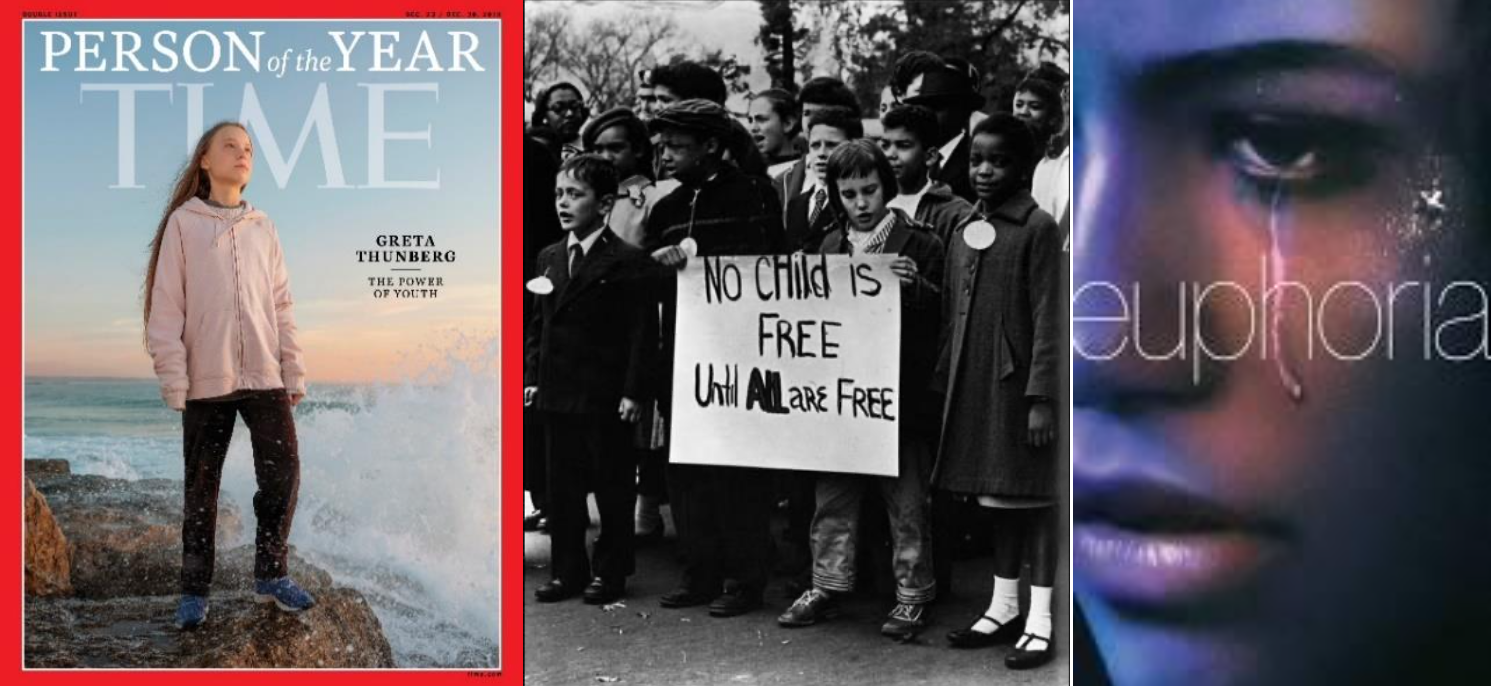
Students will study the history of American childhood to learn how major social, cultural, political, and economic changes in the U.S. have defined the nation's culture. Students will gain a better understanding of how our ideas and beliefs about what it means to be an American have influences our ideas about childhood as well as the role of children and young adults in shaping our world. Students will examine a diverse mix of sources including literature, archival documents, films, music, and social media.
Note(s): Fulfills Humanistic Inquiry and Expository Writing requirements.
AM 101W 002 Rise and Fall of the New Deal
Aaron Pedinotti | 4 credits

This course introduces students to the disciplinary parameters and methodologies of American Studies via a semester-long engagement with a major topic in 20th century American history that has recently begun to loom large in contemporary public discourse: the set of Depression Era Federal Government programs and reforms known as the New Deal. Throughout the course, the New Deal will serve as a practice object for applying concepts, models, and empirical methods of American Studies to the understanding of historical topics. Students will learn about basic approaches within the field, apply them to the analysis of the New Deal, and in so doing, acquire skills that can be used in the analysis of other historical eras as well as contemporary culture. In addition to learning about the history, governing philosophies, and economic ideas that informed the New Deal programs, students will learn about the complex ways that the New Deal has functioned as a marker of historical memory and a contentious political signifier in the decades since its occurrence.
200 Level Courses
AM 221 Methods and Approaches
Rebecca Krefting | 4 credits
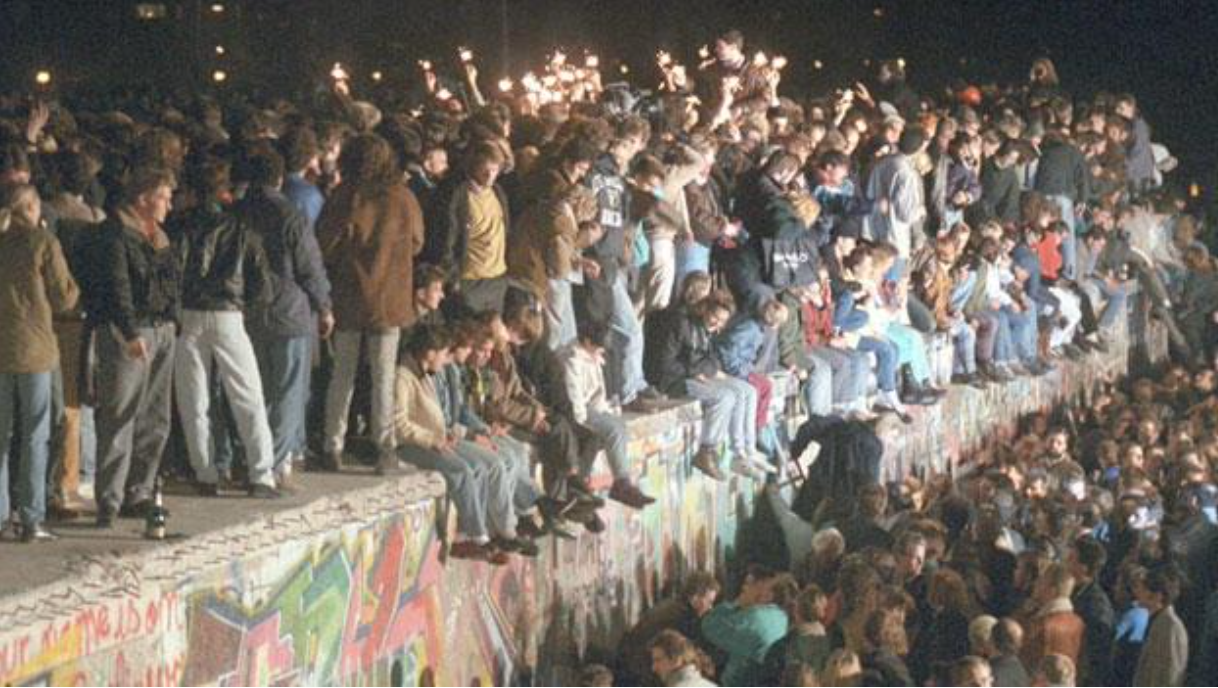
An introduction to American studies, scholarship, methologies, and approaches to the study of society and culture in the United States. Course materials include "classics" in American studiies as well as the most recent scholarship: the "myth and symbol" school, the culture concept, psychoanalytic methodologies, new literary and feminist critiques, material culture and oral history resources, mass and popular culture analyses, with attention to issues of race, gender, class, and ethnicity throughout. The intent of the course is to offer students a variety of opportunities to sharpen their analytical, research, and writing skills from interdisciplinary and historiographic perspectives. Required of majors and minors in their sophomore or junior years.
AM 261C Gaming in American Culture
Aaron Pedinotti | 3 credits

This course explores the multivalent significance of video gaming to American society and examines the many ways in which the diverse forms of gaming praxis have been represented in American culture. Taking an interdisciplinary approach, it examines gaming as a set of socio-cultural practices with profound resonances and effects in American life. Culturally oriented portions of the course focus on representations of gaming in films, television shows, genre fiction, and in games themselves. Other portions focus on the intertwinement of gaming with broader social, political, and economic issues. These include questions of ethnic, racial, and genger representation and diversity in games; the relationship of game industries and online worlds to America's place in the global economy; the historical roles of gamic practices in US military planning and technological development; the increasing influence of online game communities and fan cultures in mainstream society; debates and moral panics over violence in games; and the potential role of games as educational, journalistic and persuasive technologies. Game genres studied in the course include console and pc-based videogames, war and strategy games, tabletop and massive multiplayer online RPGS, and virtual reality games. Readings include theoretical texts, game studies literature, historical accounts of video gaming's emergence and development, and cultural and ethnographic studies of American gaming. Evaluation is based on reading responses, participation, and papers. Some experiential engagement with gaming is also part of the curriculum.
AM 261D Holocaust and American Culture
Daniel Nathan | 4 credits
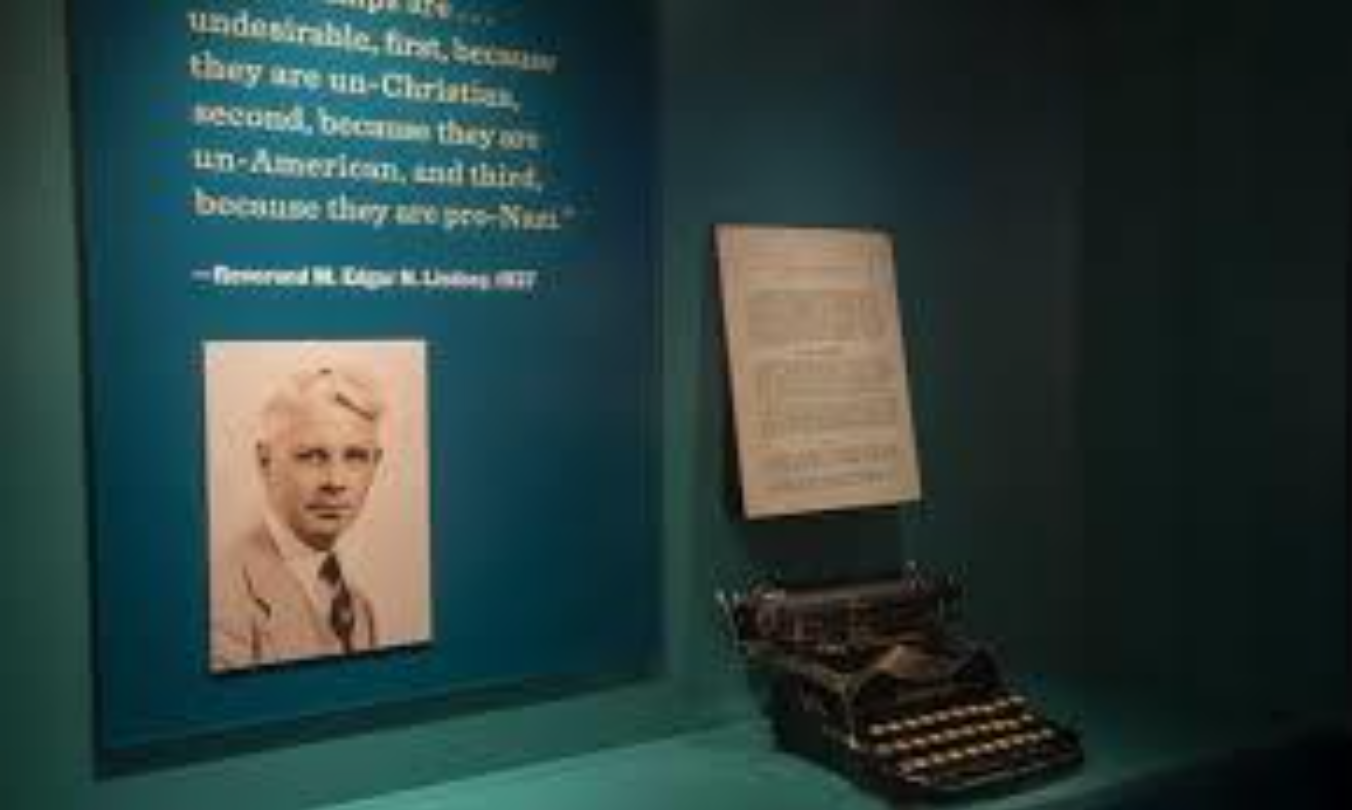
This course has two emphases. The first third will focus on what Americans knew about the Nazi's genocidal policies in the 1930s and 1940s, how and when they knew it, and why the U.S. government and Jewish leaders were mostly ineffective in halting or mitigating the murder of some six million European Jews (among others). It will also consider the initial American reaction to learning about the Nazi death camps in 1945. The remaining two-thirds of the course will employ an interdisciplinary methodology to critique and put in context a variety of texts-films (documentary and feature), a TV series, graphic non-fiction, museums – created by and for Americans that have represented the Shoah ("the catastrophe"). The course will engage issues related to power and justice. It will probe the ways in which those in power in the United States did less than they could or might have done to save thousands of European Jews. It will also consider the power of popular culture to teach people lessons about the past and social justice. Ultimately, the class is about the power of remembering and representing the past, and the perils and possibilities that are part of those processes.
300 level courses
AM 351D 001 Black Feminist Thought
Tammy Owens | 4 credit
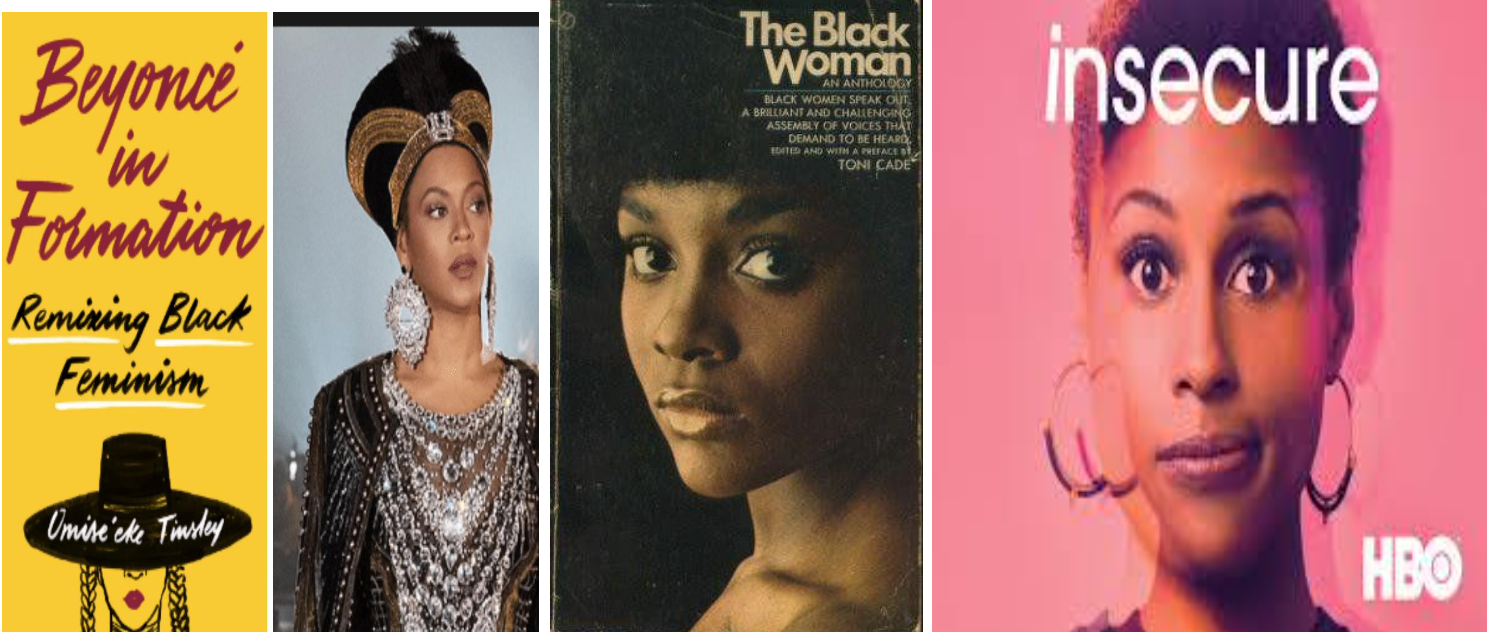
Black Feminist Thought – Examines the development and materialization of Black feminist thoughts within historical, social, political, and cultural contexts. Interdisciplinary in focus, it surveys feminist politics and theories through films, popular culture, manifestos, literary texts, archives, and theoretical and historical essays. In addition, this course will address how the concepts of black feminism and black womanhood overlap and diverge in accordance with the modes of representation used to articulate them.
AM 351D 002 The Funny Thing About History
Rebecca Krefting | 4 credits
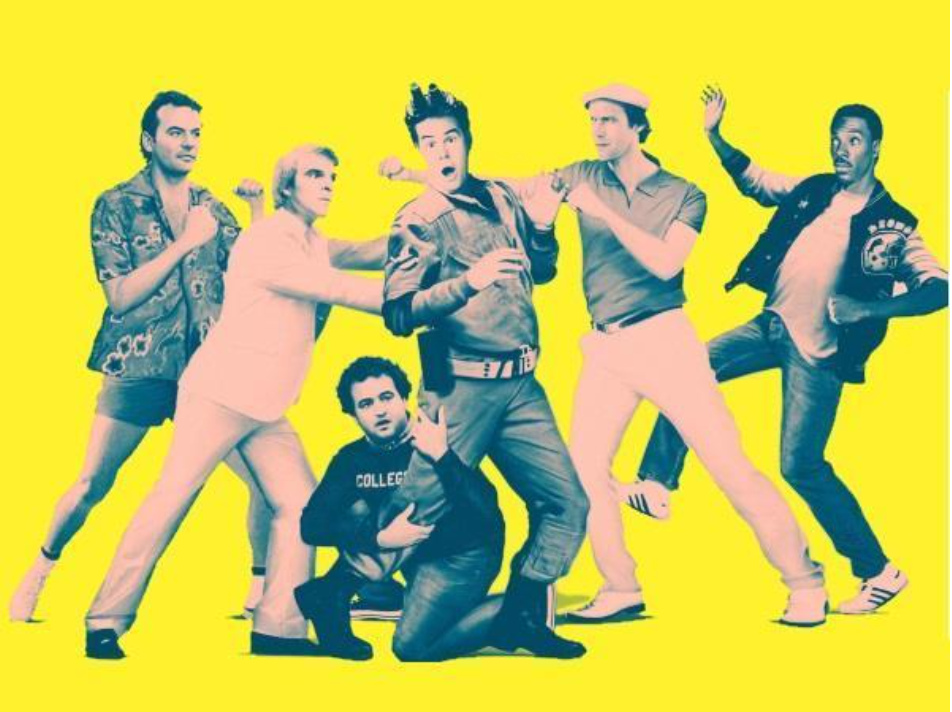
This course focuses on the historiography of stand-up comedy or the study of historical writings about stand-up comedy spanning from the mid-20th century to the present. We will critically examine how the history of stand-up comedy has been told – who gets to write it, which comics get remembered, how such histories are gendered and raced, and the politics of editing. Students will conduct original research to re-write the history of stand-up in particular periods with a focus on the following forces shaping comedy: clubs/venues, the economy, gender politics, comedy styles, racial/ethnic humor, technologies, and audience.
AM 356 Sports Cinema
Jeffrey Segrave | 4 credits
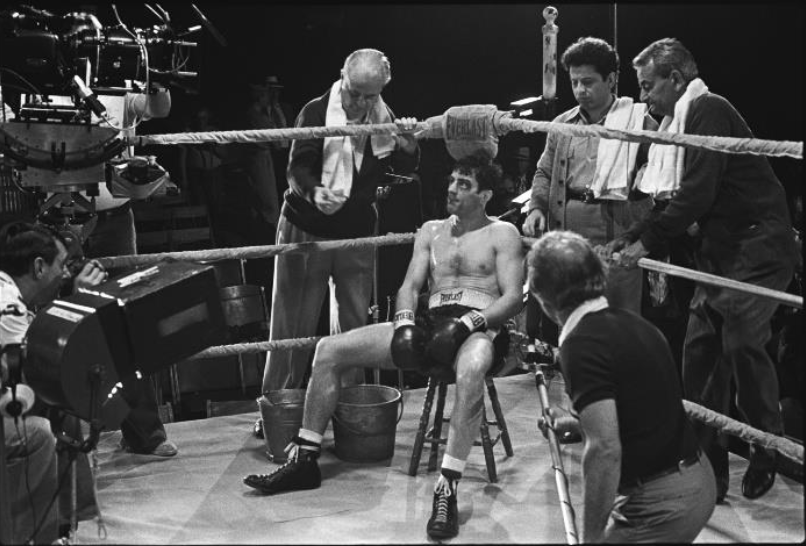
This classs puts in context and critiques feature films and documentaries about sports to understand and appreciate – aesthetically, historically, culturally – a wide variety of experiences and issues. The course is also intended to enhance visual literacy, and thus students will assess the films as films, which have theur own codes and conventions. As one would expect, most of the fims we will study were made the set in the United States. A notable exception in Leni Riefenstahl's Olympia (1938), which chronicles and celebrates the 1936 Berlin Olympic games. We will screen several "classic" sport films – among them, Knute Rockne – All American (1940), Raging Bull (1980), and Hoop Dreams (1994). After spring break, we will pair a Hollywood feature film with a related documentary: so, for example, Ken Carlson's Go Tigers! (2001), which is about high school football in Massillon, Ohio, will be pared with Peter Berg's Friday Night Lights (2004). The point is not to suggest that documentaries provide a more accurate version of sporting reality; rather, it is to consider what different kinds of visual texts, grammars, and discourses do well (and poorly) and how they interact with and enhance one another. Students are required to attend a weekly evening film screening.
AM 362 American Autobiography
Daniel Nathan | 3 credits
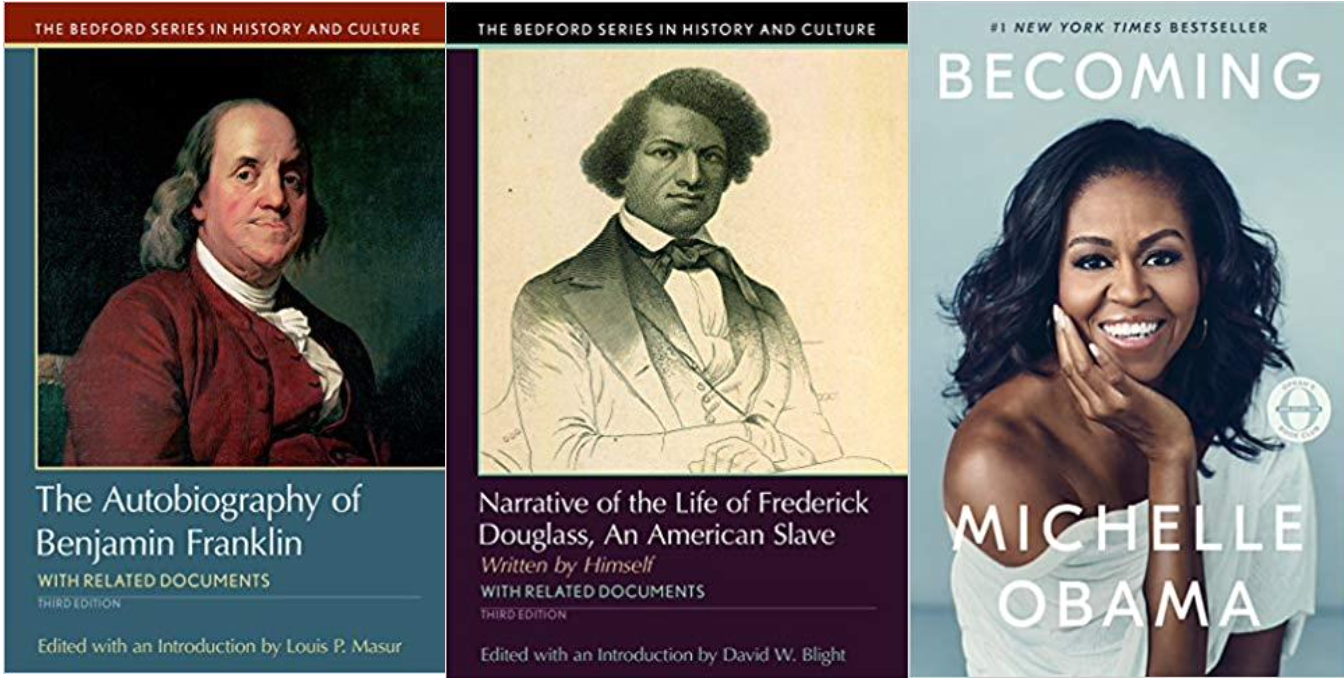
An examination of American culture through the lives of specific people as recorded in their autobiographies. The course explores autobiographies. The course explores autobiography both as an act of self-creation and as a reflection of culture. Various autobiographies are examined for their revelations about choices, crises, values, and experiences of representative people in particular periods of the American past.
Note(s): 300-level courses in American Studies are not ordinarily open to first-year students except by permission of the instructor.